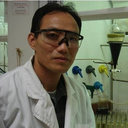A medicinal plant compound, capnoidine, prevents the onset of inflammation in a mouse model of colitis.
키워드
요약
BACKGROUND
The traditional uses of Corydalis dubia, Ajania nubigena and Pleurospermum amabile in the Bhutanese traditional medicine for treating disorders related to inflammatory conditions and the in vitro anti-inflammatory activity of their crude extracts inspired the isolation and the investigation of anticolitic properties of four pure compounds.
METHODS
Three medicinal plants were collected from Himalayan Mountains of Bhutan. Capnoidine and scoulerine were isolated from C. dubia, linalool oxide acetate from A. nubigena and isomyristicin from P. amabile using natural product isolation protocols. Four compounds were investigated for their anti-inflammatory activities against IBD-colitis using chemically induced (TNBS) mice model of colitis. Capnoidine conferred the best preliminary protection against TNBS-induced colitis in mice and we have conducted in-depth pharmacological investigation of this compound including clinical symptoms, pathological signs, cytokine profiles, histological structure and inflammasomes using relevant bioassay protocols.
RESULTS
Capnoidine-treated mice had significantly: a) improved clinical symptoms (body weight loss, mobility, piloerection and faecal consistency); b) reduced colon pathology (adhesion, oedema, ulceration, and colon length); c) altered inflammatory cytokines profiles within the colons; d) reduced levels of p-IκB-α (Ser32) and p-NF-κB p65 (Ser536) and e) reduced histological inflammation in the colon when compared with mice administered TNBS only.
CONCLUSIONS
Capnoidine presents as a potential new anti-inflammatory drug lead candidate for diseases where current standard-of-care often fails and is associated with major side effects. It also validates the traditional uses of C. dubia against inflammatory conditions and underlines the value of pursuing bioactive compounds derived from traditionally used ethnobotanical medicines.


